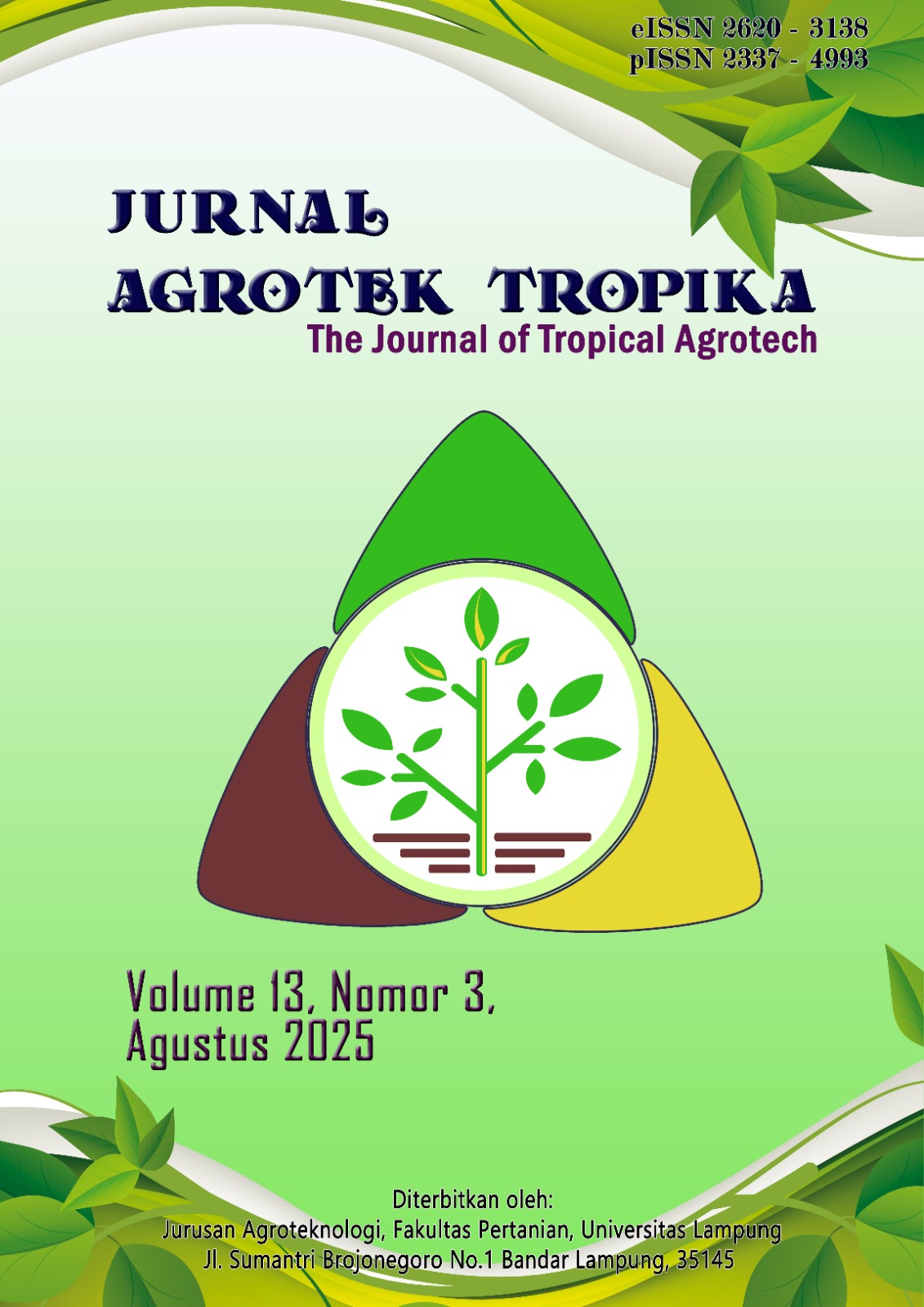THE EFFECT OF TDZ (Thidiazuron) ON THE FORMATION OF DIRECT SOMATIC EMBRYOGENESIS IN Phalaenopsis sp. ORCHID
DOI:
https://doi.org/10.23960/jat.v13i3.9795 Abstract View: 227
Abstract View: 227
Keywords:
Phalaenopsis sp.Abstract
Orchids (Phalaenopsis sp.) are among the most valuable ornamental plants due to their wide range of flower colors and high commercial demand. However, conventional propagation methods are often inefficient for large-scale production, necessitating the optimization of tissue culture techniques for rapid and uniform clonal propagation. The use of appropriate plant growth regulators, particularly thidiazuron (TDZ), is crucial for enhancing somatic embryogenesis—a key pathway for orchid micropropagation. This study aimed to determine the optimal concentration of TDZ for inducing somatic embryogenesis in Phalaenopsis sp. through histological analysis and scanning electron microscopy (SEM) observations. A completely randomized design was employed using Murashige and Skoog (MS) medium supplemented with four TDZ concentrations (1, 3, 5, and 7 mg/L). Leaf explants of Phalaenopsis sp. served as the explant source. The results demonstrated that direct somatic embryogenesis successfully occurred from leaf explants across treatments. Among the tested concentrations, 5 mg/L TDZ produced the most effective response, resulting in the highest somatic embryo formation rate (32%) and the shortest time to embryo maturation (37 days after culture initiation). The embryos exhibited characteristic dark green coloration and a crumbly texture. These findings highlight the pivotal role of TDZ in promoting somatic embryogenesis in Phalaenopsis sp., providing a reliable protocol for efficient orchid propagation. The study contributes to the advancement of orchid biotechnology by offering histological and ultrastructural evidence that supports the optimization of clonal propagation systems for commercial and conservation purposes.
Downloads
Downloads
Published
How to Cite
Issue
Section
License
Copyright (c) 2025 Intan Dwi Adinda, Didik Pudji Restanto, Parawita Dewanti, Denna Eriani Munandar, Sri Hartatik, Mohammad Candra Prayoga

This work is licensed under a Creative Commons Attribution 4.0 International License.
Jurnal Agrotek Tropika (JAT) is licensed under a Creative Commons Attribution 4.0 International License.
The copyright holder is the author. Authors publishing under any license allowed by the journal retain the copyright and full publishing rights without restrictions.
The Creative Commons Attribution 4.0 International (CC BY 4.0) license allows users to copy, distribute, and adapt the work, even for commercial purposes, as long as proper attribution is given to the original creator. This is a highly flexible license that encourages widespread dissemination and use of creative works, supporting innovation and collaboration across various fields.











